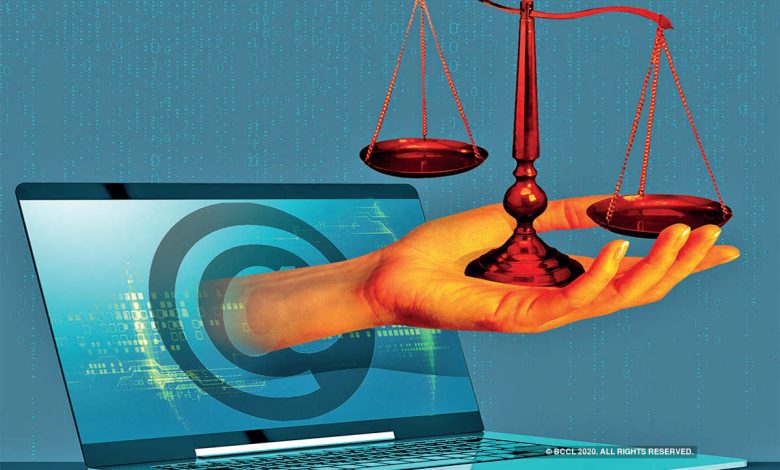Online Dispute Resolution And Blockchain Arbitration

Online dispute resolution refers to using the internet to mediate and arbitrate a dispute and resolve it according to legal norms. Online dispute resolution is especially important in cases related to disputes arising in cyberspace.
Blockchain is a new and vital technology that has been developed in recent times. With hundreds and thousands of disputes arising from smart contracts, blockchain arbitration is gaining traction as an alternative mode of dispute resolution. Conflicts on the blockchain require this specialized mode of mediation.
Before we dive into blockchain arbitration, it is essential to understand what a blockchain is.
The best word to describe the blockchain would be a ledger. The blockchain is a ledger that records all your transactions but is digital and incorruptible. It does not record only financial transactions; anything of importance could be recorded in it.
The blockchain was initially developed for cryptocurrency transactions but had multiple potential uses. For one, it is not hosted on one server; instead, it is spread across the globe on millions of computers. As any hacking attempt would have to deal with millions of computers simultaneously, the blockchain is thought to be all but incorruptible.
A significant consequence of blockchain technology is smart contracts. These are specialized contracts that are written entirely in code. This makes intelligent contracts essentially a computer program – a computer program that can run instructions given to it in its code. This means the obligations laid out in a smart contract would automatically be executed.
The critical decisions regarding intelligent contracts make it a necessity that a specialized system for arbitration is developed. This system is referred to as blockchain arbitration.
Smart contracts are automated and self-explanatory; one would not expect disputes to arise from them. Of course, that is true for more straightforward agreements as well. However, as intelligent contracts get complex, misunderstandings in the transactions are likely to arise.
Different modes of blockchain arbitration are under development, such as CodeLegit and Kleros.
CodeLegit has its own rules for blockchain arbitration as well as directions regarding Appointing Authority’s appointment of an arbitrator. Who could be that arbitrator? According to CodeLegit, it could be a jurist, or it could be a technician of the blockchain. CodeLegit’s protocol prescribes email communication and a hearing over a video conference. The protocol is not that different from a standard online dispute resolution.
Meanwhile, Kleros has a different blockchain arbitration system closer to a mock-judicial system. Kleros has a proper court with two tiers of sub-court divisions. The arbitrators of justice in Kleros’s system are volunteer jurors selected randomly using a number generator. The system has a framework for appeals and bribe-resistance mechanisms for the jurors.
Blockchain arbitration is often called the future of dispute resolution by tech enthusiasts, but is this true? While a promising technology, blockchain arbitration has several issues that prevent it from replacing the traditional arbitration system for now.
The first problem has to do with the nature of smart contracts. As they are entirely in code, they do not fulfill the formality requirements and hence are not recognized as valid contracts by most countries. Furthermore, translating complex contracts correctly into a code that can act as a smart contract is also tricky.
Another problem with blockchain arbitration specific to the Kleros model is that the jurors are supposed to decide by looking at the transaction evidence on the blockchain. The arguments of the disputing party are not an essential factor in this system, which violates Article V(1)(b) of the New York Convention. Major revisions are needed to adapt Kleros to the standards set in New York Convention.
To conclude, a system must be designed to cater to disputes arising regarding blockchain and smart contracts. There are multiple ways to do this – the Kleros and the CodeLegit models are the two most popular blockchain arbitration models. They have made significant progress in realizing the dream of blockchain arbitration. However, they have a long way to go before they become more mainstream and comply with existing conventions on dispute resolution.
For any important information please contact us Email GadgetsNg info@gadgetsng.com
[Button id="1"]



I don’t think the title of your article matches the content lol. Just kidding, mainly because I had some doubts after reading the article. https://accounts.binance.com/pl/register?ref=T7KCZASX
This link http://www.findtheneedle.co.uk/blog/how-many-paragraphs-should-an-essay-be is a valuable resource for essay writing. It tackles the often confusing question of how many paragraphs an essay should contain. A must-read for students striving for clarity.
qwerty
It is very difficult to read other people’s e-mails on the computer without knowing the password. But even though Gmail has high security, people know how to secretly hack into Gmail account. We will share some articles about cracking Gmail, hacking any Gmail account secretly without knowing a word.
If you are thinking of using a cell phone spy app, then you have made the right choice.
Thanks so much for sharing the info.